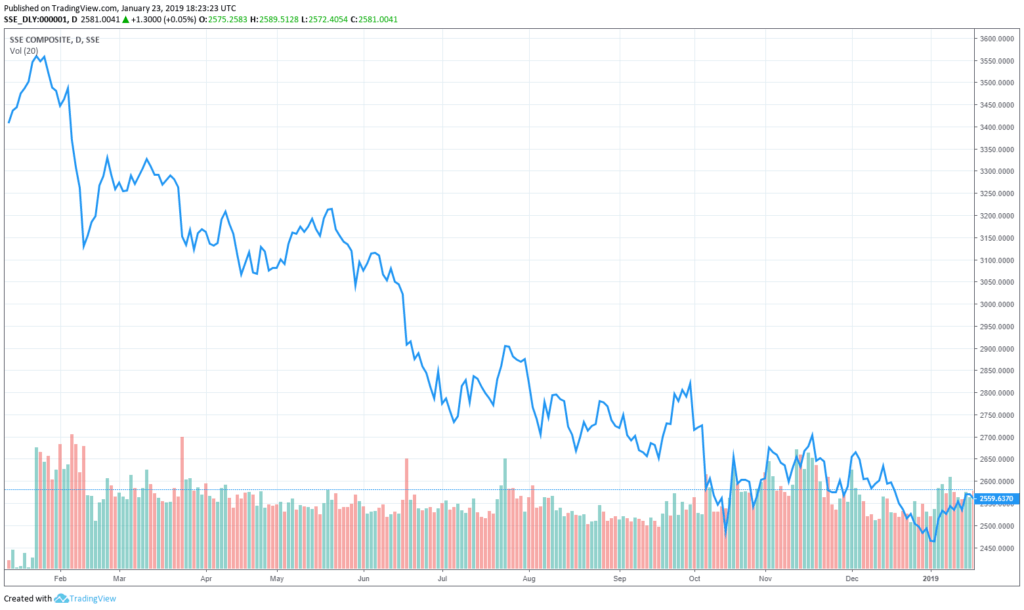
By CCN.com: The U.S. stock market has performed relatively well in comparison to other major regions including China and Japan, as seen in the strong performance of the Dow Jones throughout the past three weeks.
However, analysts remain concerned about the upcoming earnings reports of technology conglomerates and leading corporations in struggling industries such as car manufacturing and finance.
What Issues Does the U.S. Stock Market Currently Have?
Despite the positive trend established by both the Dow Jones and the S&P 500 throughout January, three key factors that may contribute to a potential downtrend are still looming:
- Stalling U.S.-China trade deal talks
- Slowing global growth due to poor performance in Europe
- Uncertain earnings reports of major companies
Earlier this month, Mike Wilson, a strategist at Morgan Stanley, stated that the sentiment around the U.S. stock market is extremely bearish due to the magnitude in which companies such as Apple and Skyworks failed to meet Wall Street expectations in the last quarter of 2018.
Citing a lack of fundamentals in the market, the strategist said that until the earnings reports of the majority of major companies in the U.S. market are released, investors cannot be certain of a proper trend reversal.
Wilson said:
It’s growth. Ultimately, it’s earnings. Are we going to have accelerating earnings growth. When is earnings growth going to bottom? So the two things I’m most focused on right now is earnings revision breadth. That is the reason why we were negative last year. It has turned down sharply. It’s 8 percent negative.
Morgan Stanley’s Mike Wilson, who called the sell-off, says stocks aren’t in the clear just yet pic.twitter.com/tHIMjabJZG
— CNBC’s Fast Money (@CNBCFastMoney) January 8, 2019
The issues outlined by Wilson still remain as the core problems of the U.S. market. Yousef Abbasi, INTL FCStone global market strategist, said in an interview with CNBC that an increase in the number of missed Wall Street expectations could put an end to the short-term rally of the Dow Jones.
“The minefield gets a little bit dicier with more companies reporting,” Abbasi stated.
The strategist further emphasized that in consideration of the volatile earnings reports of financial institutions in the likes of Goldman Sachs and Morgan Stanley, it will be challenging for the U.S. stock market to continue its rally throughout the months to come.
He added:
These mediocre results are getting lauded because expectations were so low. It’s going to get more arduous to rally on the back of bad news.
U.S. Will be Affected by Europe and China

At Davos, the annual World Economic Forum, London School of Economics professor Jin Keyu suggested that the rapidly growing debt of China may lead the country’s economy to become a ticking financial bomb.
“Only two years ago financial markets were saying that China is the next ticking financial bomb. Financial fragility was the issue in China because of debt. We are seeing the consequences of a deleveraging cycle to make China safer, although slower,” Keyu said, noting that the slow growth of the Chinese economy is likely to have been triggered by a large amount of debt in the country.
While the struggle of the Chinese economy could provide the U.S. more leverage in the trade talks, the slowdown of the European and Chinese economies may largely contribute to the overall decline in growth of the global economy, which the International Monetary Fund (IMF) reaffirmed in its recent report.
Featured Image from Shutterstock. Price Charts from TradingView.








